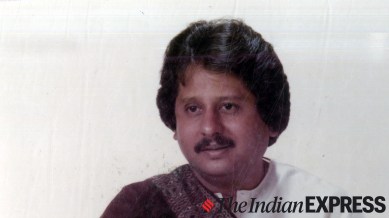Click here to follow Screen Digital on YouTube and stay updated with the latest from the world of cinema.

It is indeed a daunting task to choose a favourite Pankaj Udhas song. Indian music lovers have been gifted with numerous mesmerising tracks carrying Pankaj’s voice and we cannot express enough gratitude to the ghazal and playback singer for all the emotions he made us feel. With Pankaj’s passing on Monday, an era has come to a close, yet the timeless songs he gifted us will endure indefinitely.
Although he had already gained popularity among ghazal enthusiasts, it was the song “Chithi Aayi Hai” from Mahesh Bhatt’s Naam (1986) that truly propelled Pankaj into the spotlight. Reflecting on this opportunity, Pankaj shared during an interview with The Hindu in 2017, “The offer to sing in Naam came quite like a bolt from the blue. The film’s producer, eminent actor Rajendra Kumar, I came to know later, was impressed by my ghazals and wanted to include one of them in the film. He also wanted me to play a cameo, which really did not excite me. But Rajendra Kumar got in touch with me through my brother Manhar bhai and I could not refuse.”
Pankaj further recounted that upon hearing lyricist Anand Bakshi recite the lyrics of “Chithi Aayi Hai,” he sensed he was about to be part of something special. “It’s like, say Lata ji ’s (Lata Mangeshkar) all-time favourite ‘Aye Mere Watan Ke Logon.'”
Referring to the enduring love “Chithi Aayi Hai” receives, he observed, “I can understand this feeling when I sing this abroad for the core emotions certainly touch the minds of non-resident Indians there. They are those who crave the fragrance of the mitti (soil) of their land, and who feel a loss of sense of belonging. But I really don’t know why people cry while listening to the song in India. Later, I figured out that when I sing in Kochi, there may be a Bihari in the audience who is taken back to his land, his elderly mother at home perhaps, or the festivals there. In a sense, the song affects everyone who feels displaced.”
For Pankaj Udhas, who drew inspiration from the likes of Begum Akhtar and Mehdi Hasan, the diminishing presence of ghazals in Bollywood was disheartening. “In those days, we had filmmakers and music directors, who were well-versed in Urdu and Hindi. For instance, Guru Dutt was one filmmaker who groomed classical poets. Just listen to his songs in films like Kaagaz Ke Phool. Filmmakers like him used ghazals whenever the film demanded an emotion-charged sequence. Music director Madan Mohan, for example, created immortal ghazals.”
“I can list at least 20 ghazals sung by Rafi saab (Mohammed Rafi) and Lata ji for various composers. Listen to ‘Aap Ki Nazron Nay Samjha…’, it is a proper ghazal. The producer, who perhaps for commercial reasons, wanted Madan Mohan to make it more racy. But Madan Mohan explained that romance is not all about the pace of the song, rather, it is about the nuances of the composition and the lyrics. And when the film was released, this song was most popular. And it still is,” he emphasised.
Highlighting that contemporary films and filmmakers predominantly focus on action-packed, technology-driven productions set in exotic locations, Pankaj added, “We don’t have the mind to think in Hindi. They think in terms of Hollywood. This is certainly a setback for ghazals. Cinema is still a powerful medium and it has always supported ghazals. That avenue is more or less closed.”
“When I started my career, I knew precisely what to do. It was to reach out to a larger audience. For this I had to adopt a simpler approach to language without compromising on the essence or soul of the poems. I was never for profundity at the cost of clarity. There was a time when Urdu was understood by a large number of people in our country. But now there are few who understand the language. So I tried to make poets write in Hindi, insisted that they even use colloquial terms, Urdu terms if necessary. But the themes, ideas and very often the tone itself closely followed what the great poets often wrote,” he said.
Born in Jetpur, Gujarat, as the youngest of three brothers, Pankaj Udhas was also an admirer of the English rock band Beatles and American singer Whitney Houston. Some of the chart-toppers in his repertoire include “Na Kajre Ki Dhar”, “Chandi Jaisa Rang”, “Jiye Toh Jiye Kaise” and “Chupke Chupke Sakhiyon Se”.
Click here to follow Screen Digital on YouTube and stay updated with the latest from the world of cinema.